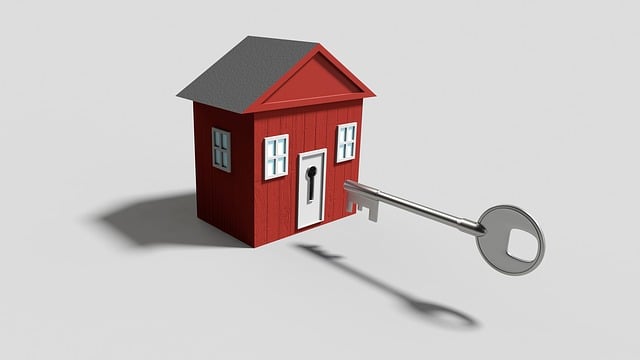Understanding mold disclosure laws is critical for anyone involved in buying or selling a property with mold. These laws protect buyers by mandating transparent disclosures of known mold issues. A thorough real estate mold inspection assesses the problem's extent and its impact on home value, which is crucial for negotiations and mortgage eligibility. For sellers, addressing mold proactively can mitigate potential mortgage issues and maintain or increase property value. Buyers should discuss repair costs and loan options with lenders to navigate any mold disclosure laws–related complexities.
Considering buying a house with mold issues? It’s a complex decision. This guide navigates the challenges of purchasing or selling a property affected by mold, armed with insights on crucial aspects like mold disclosure laws (a key factor in many jurisdictions) and understanding how mold impacts home value. We explore real estate mold inspections, mortgage options for both buyers and sellers facing mold problems, and strategies to navigate this complex scenario successfully.
- Understanding Mold Disclosure Laws: What You Need to Know
- Evaluating the Impact of Buying a House with Mold Issues
- Selling a Home with Mold: Navigating the Process and Potential Challenges
- Mortgage Options and Strategies When Dealing with Mold Problems
Understanding Mold Disclosure Laws: What You Need to Know

When considering buying or selling a house with mold problems, understanding mold disclosure laws is crucial. Many regions have specific regulations in place to protect both buyers and sellers from potential health risks associated with mold. These laws typically require that any known mold issues be disclosed during the real estate transaction. Failure to do so could lead to legal repercussions and mortgage issues.
Before proceeding with a purchase, arrange for a comprehensive real estate mold inspection. This step is essential to assessing the extent of the mold problem and its impact on the home’s value. Knowing the specifics of the mold disclosure laws in your area will also help ensure you’re compliant and aware of any potential financial implications related to home value and mold.
Evaluating the Impact of Buying a House with Mold Issues

When considering whether to buy a house with mold problems, it’s crucial to understand the potential implications and evaluate the impact on your decision. Many regions have implemented mold disclosure laws to protect buyers, ensuring they are aware of any known mold issues within a property. A thorough real estate mold inspection is essential to assess the extent of the problem. During this process, experts will identify where the mold is located, its type, and how severe it is, which can provide valuable insights into potential repair costs and home value adjustments.
Buying a house with mold may result in various challenges, including selling a house with mold later on, as it could be a significant concern for prospective buyers. Mortgage issues due to mold are not uncommon, as lenders often require the property to be remediated to a certain standard before approving financing. Home value and mold are directly linked; severe or extensive mold can significantly decrease a property’s worth, making it a complex issue that requires careful consideration.
Selling a Home with Mold: Navigating the Process and Potential Challenges

When it comes to buying or selling a home with mold problems, understanding local mold disclosure laws is crucial. In many areas, sellers are legally required to disclose known mold issues to potential buyers, ensuring transparency throughout the real estate transaction process. Failure to do so could lead to legal complications and financial penalties. A thorough real estate mold inspection becomes even more critical in these situations as it can reveal the extent of the problem and help determine if the home’s value has been affected by mold.
Selling a house with mold presents unique challenges, from negotiating repairs with buyers to managing potential mortgage issues due to the presence of mold. Buyers may be hesitant to commit, especially if the mold is extensive or there have been previous water damage incidents. This can lead to lower offers or even failed sales. Sellers should consult with real estate professionals who specialize in such situations and consider offering repairs as part of the sale agreement to attract buyers and protect their investment. Home value and mold are closely linked; addressing the issue proactively can help maintain or even increase the property’s worth, making it an essential step for both current owners looking to sell and prospective buyers seeking a healthy living environment.
Mortgage Options and Strategies When Dealing with Mold Problems

When considering buying a house with mold problems, understanding your mortgage options is crucial. Mold disclosure laws vary by region, but typically sellers must disclose known mold issues in a property. This transparency is essential for buyers to make informed decisions and assess potential repair costs. If you’re purchasing a home with mold, discuss these concerns openly with your lender before applying for a mortgage. Lenders may have specific requirements or restrictions regarding homes with mold, and they can guide you on available loan types and terms tailored to such situations.
A real estate mold inspection is an integral step in the buying process. It helps identify the extent of the mold problem and associated repair needs, which impact both home value and mortgage eligibility. Depending on the findings, buyers might negotiate the sale price or require the seller to mitigate the mold issue before finalizing the purchase. Mortgage issues due to mold can be navigated by working closely with a lender who understands these complexities. They can offer strategies like loan modifications, flexible terms, or specialized financing programs designed to support homeowners addressing mold-related repairs and ensuring long-term mortgage stability.














